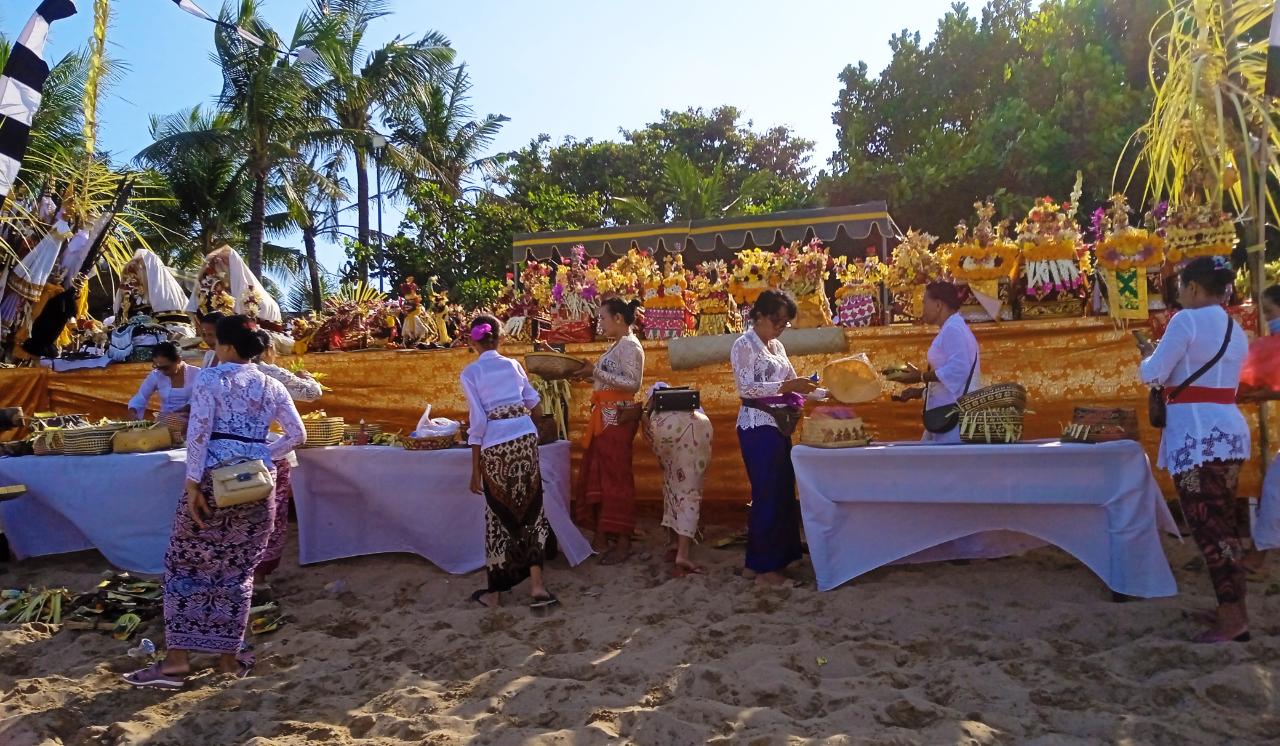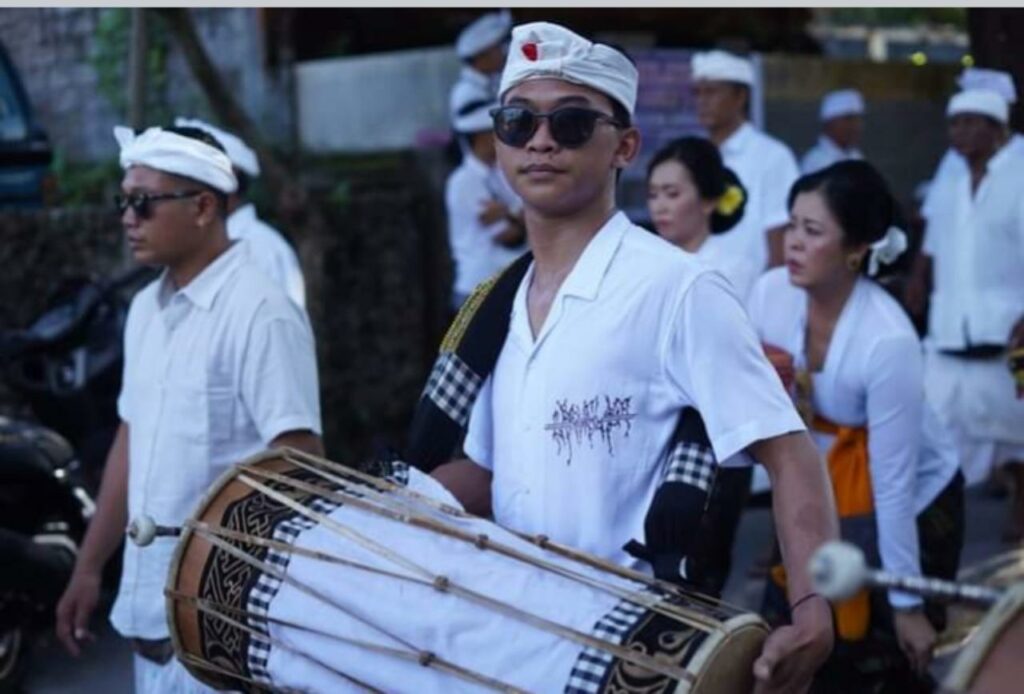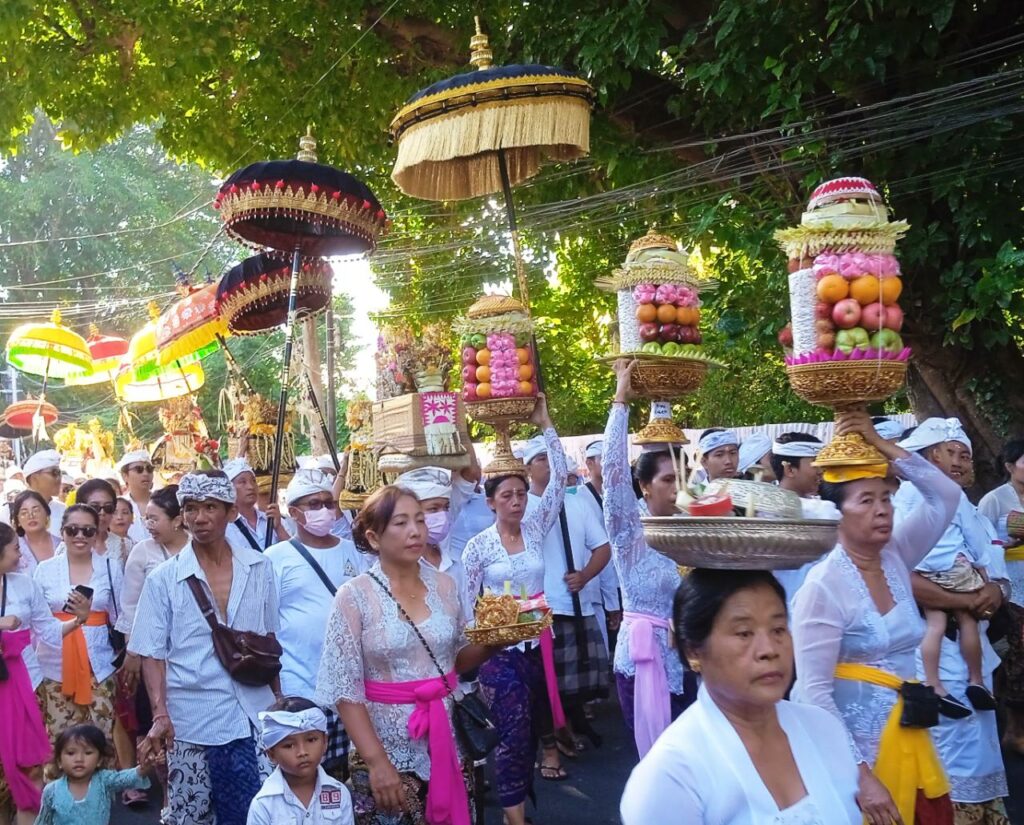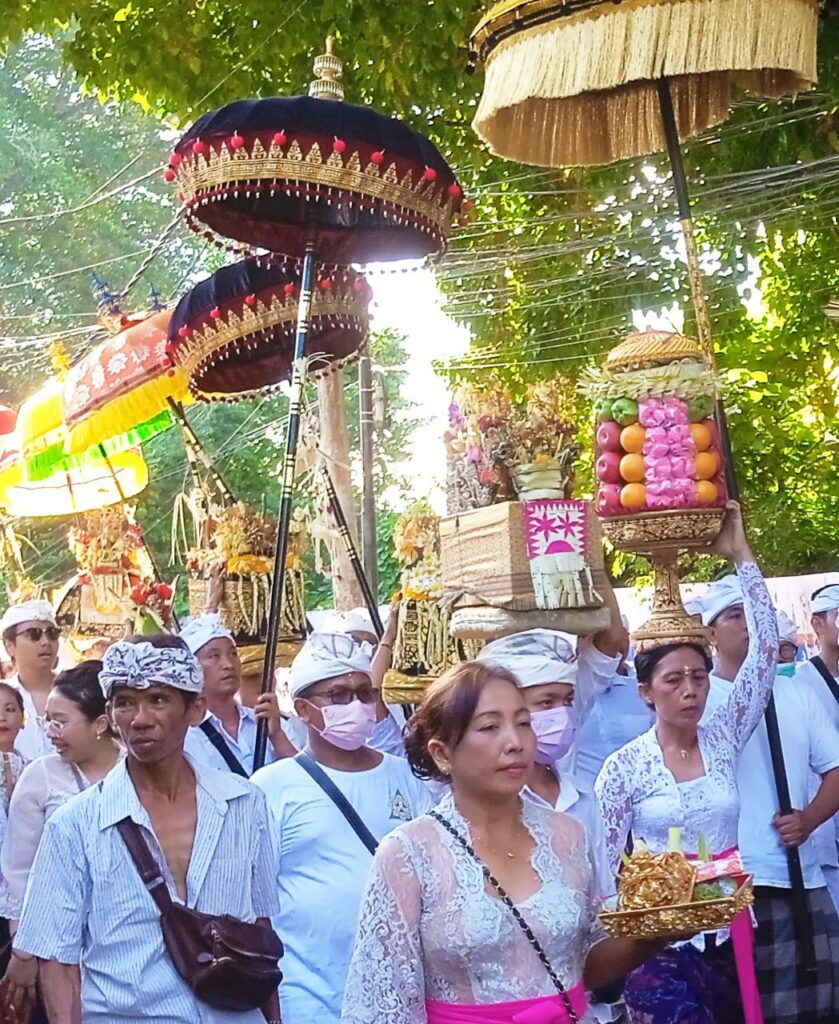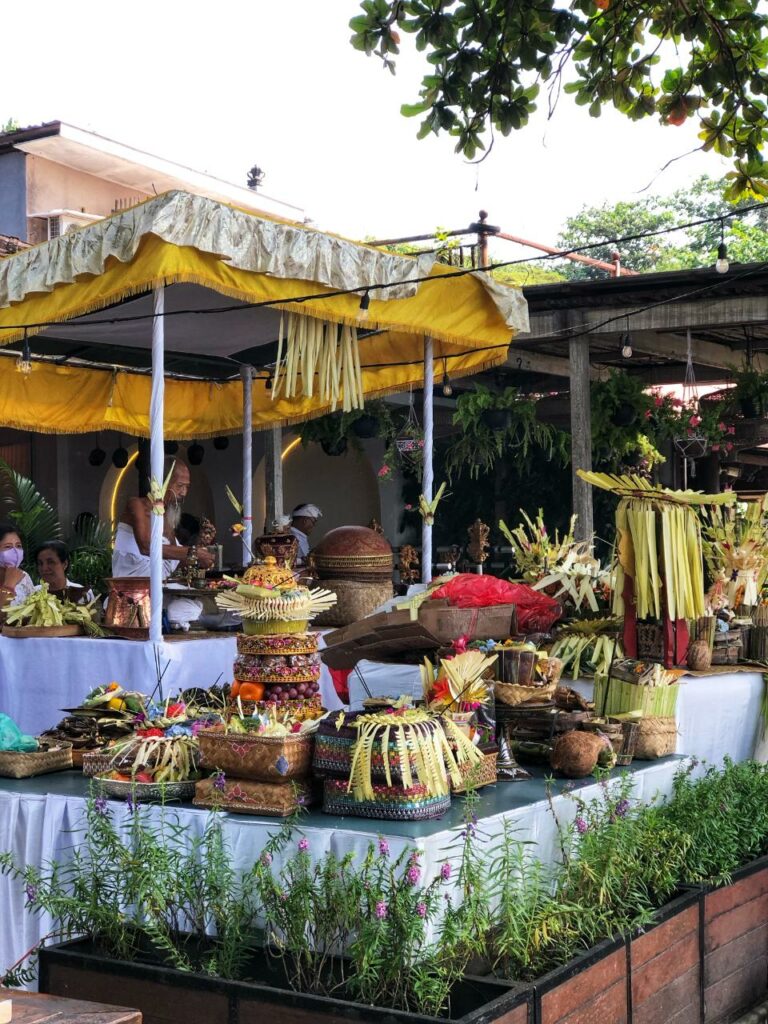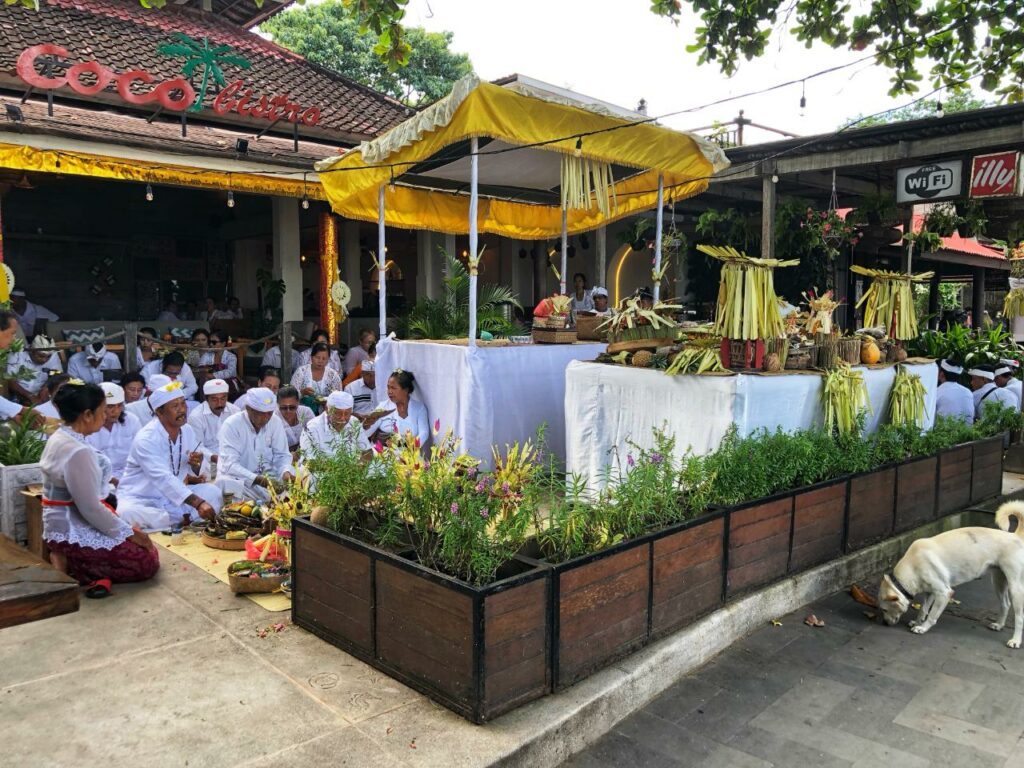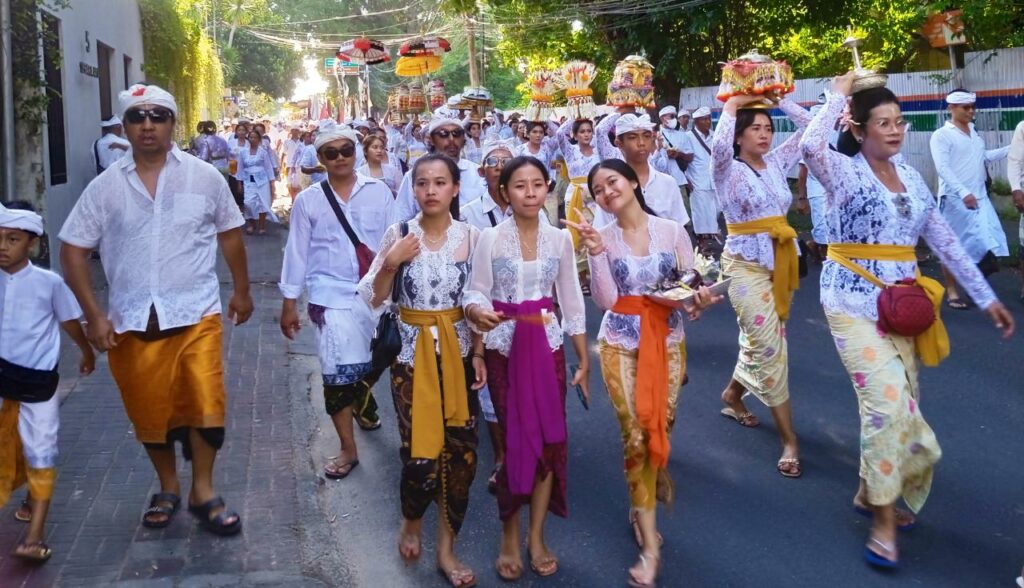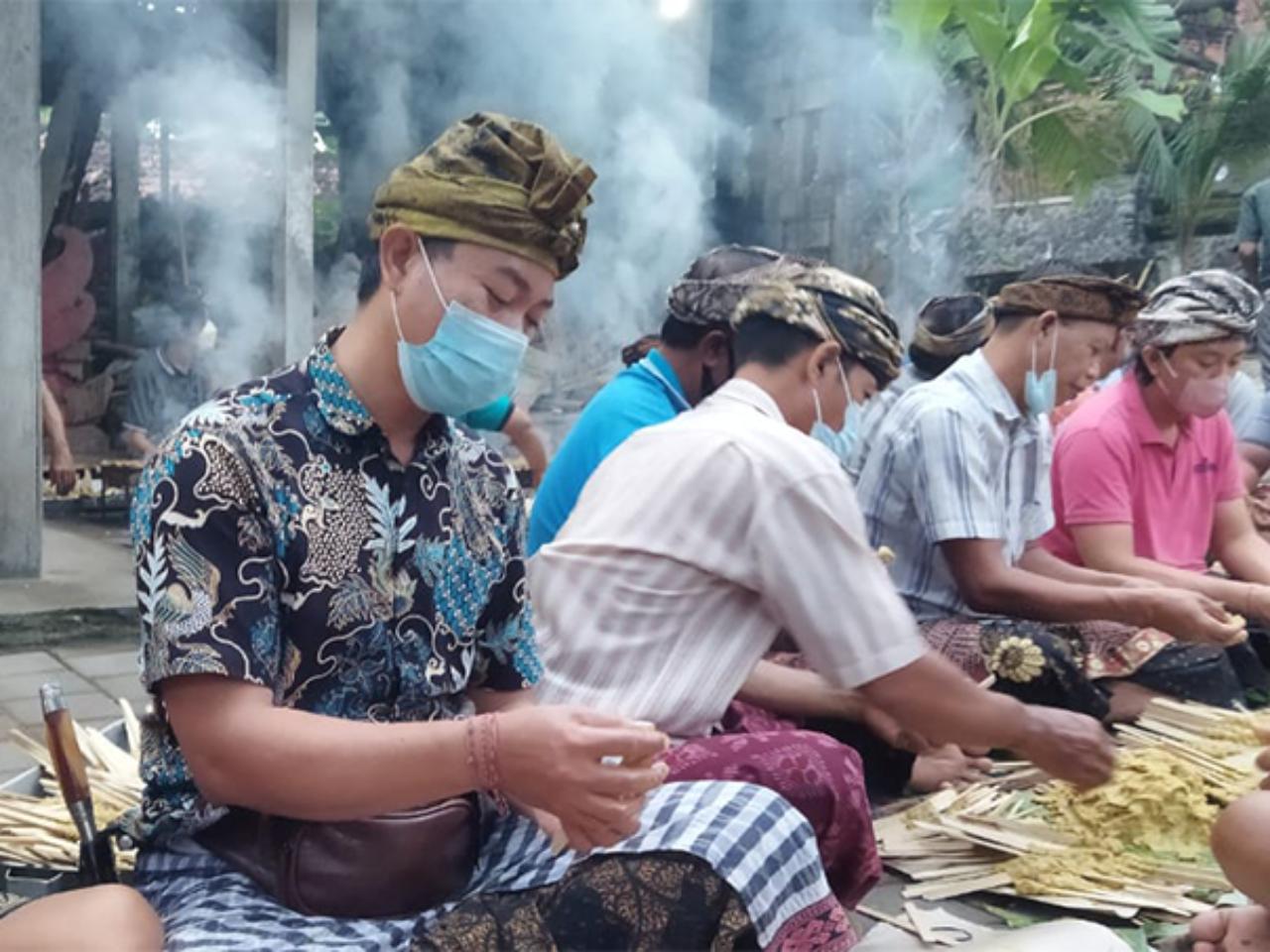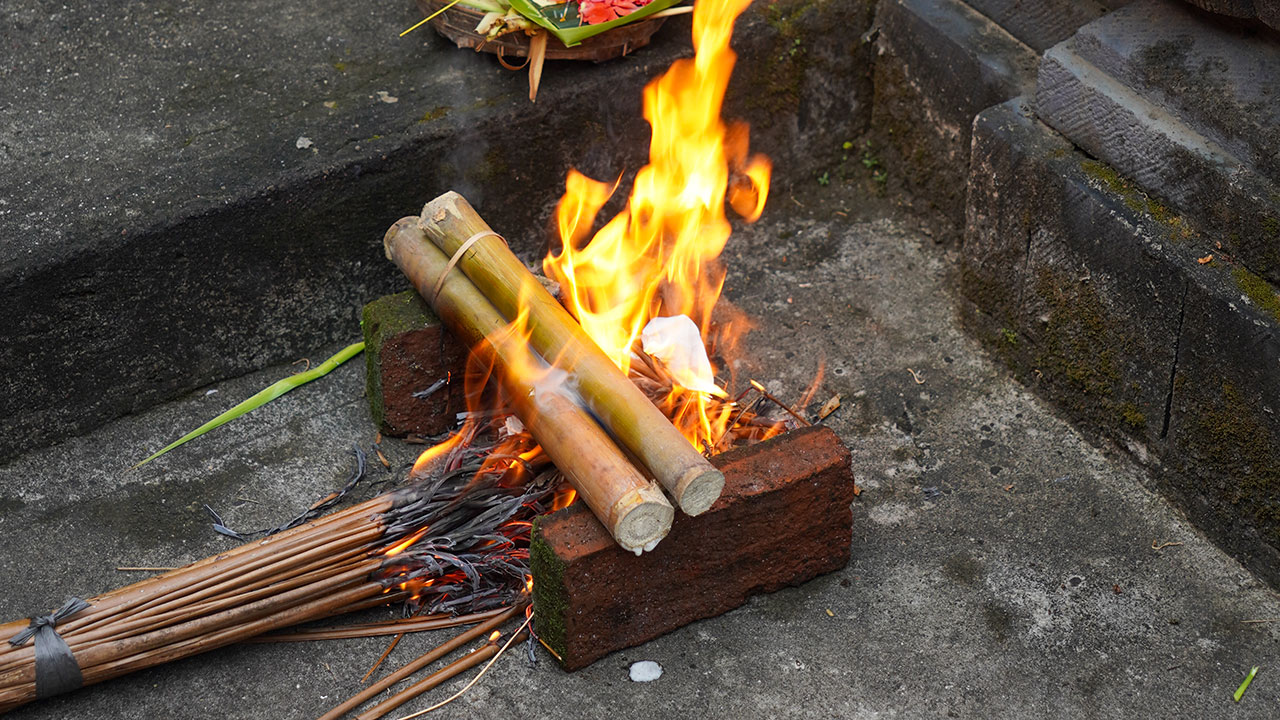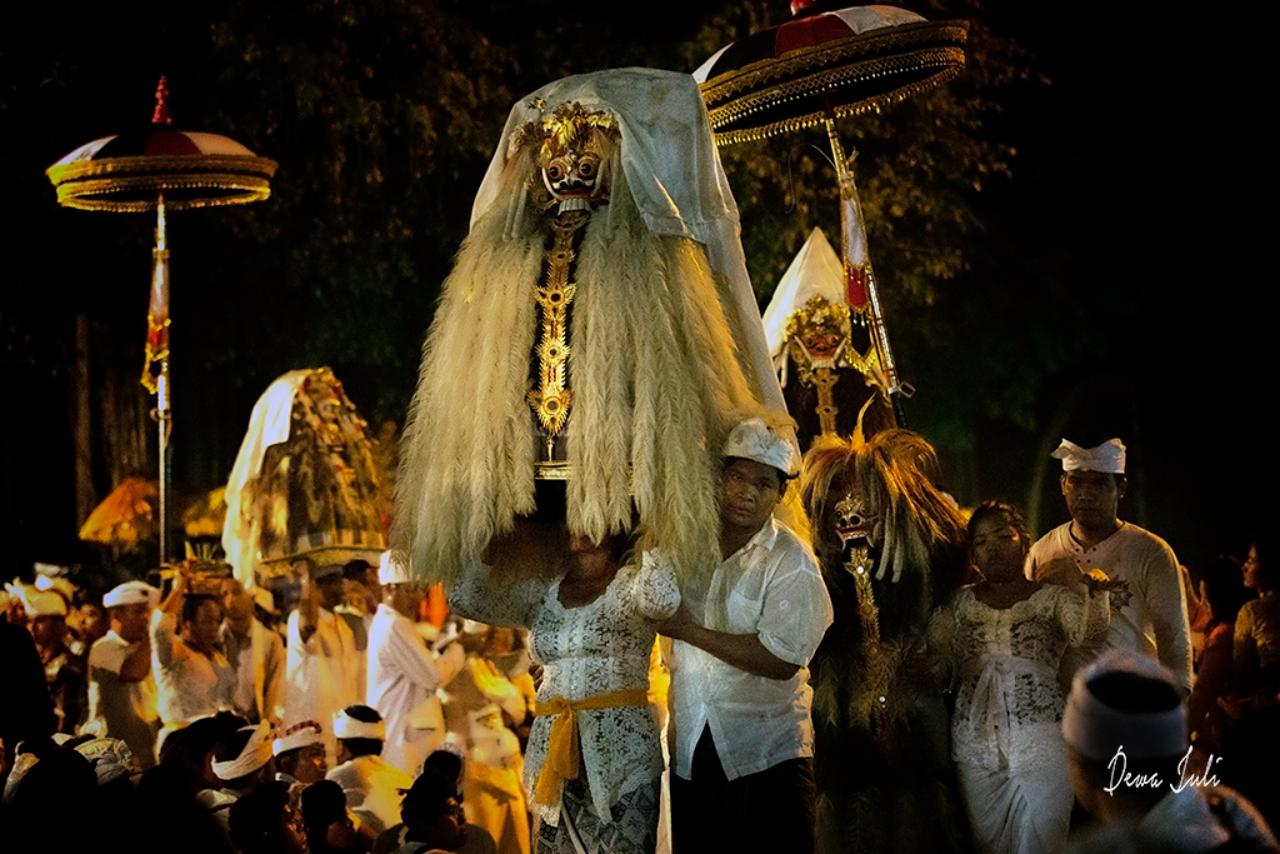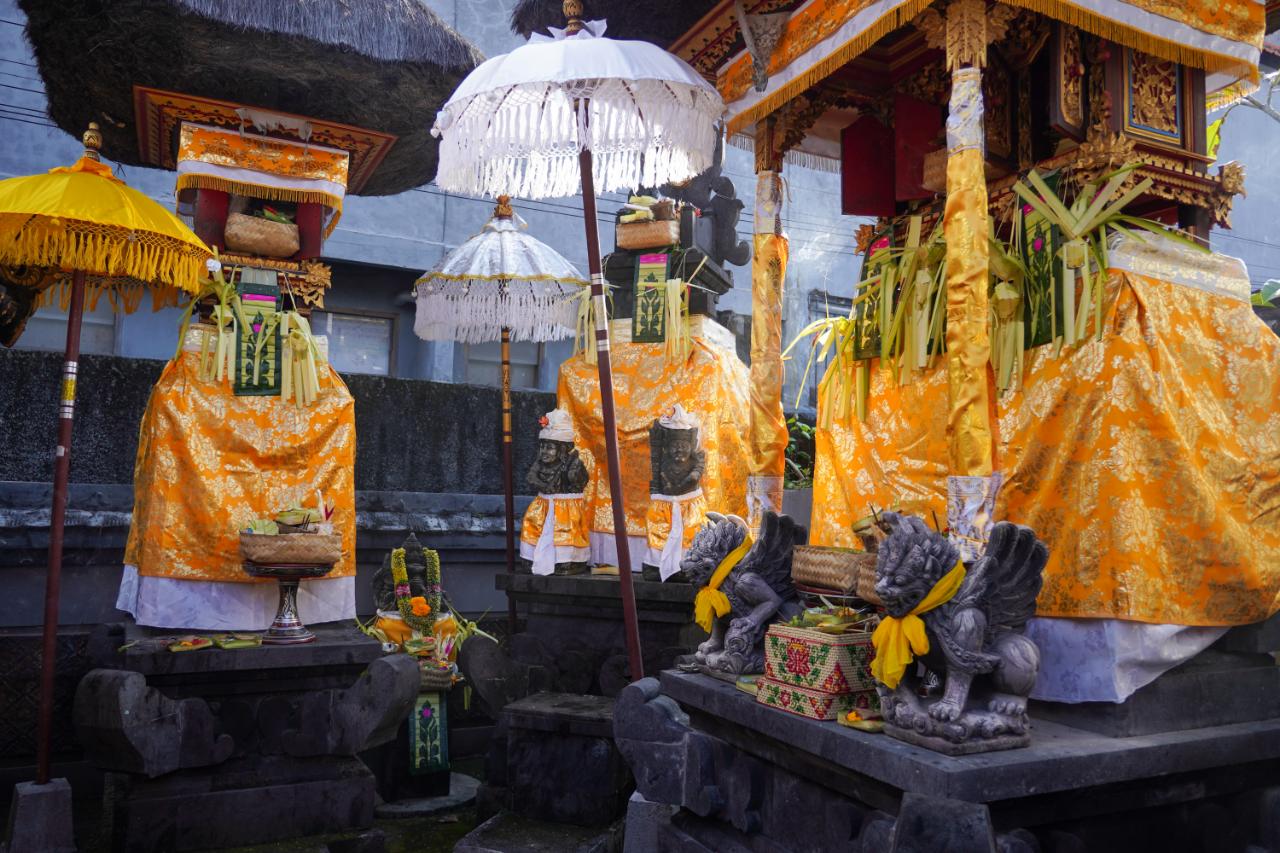Balinese ceremonies are elaborate and vibrant cultural events that are an essential part of Balinese Hinduism. These ceremonies revolve around the worship of the gods and ancestors, seeking blessings, and purification.
The most significant of these ceremonies are Galungan and Kuningan, which celebrate the triumph of good over evil. Galungan is a ten-day festival that commences with the victory of Indra over the demon king Mayadanawa. Celebrations include offerings of fruit and flowers, elaborate processions, and traditional dances.
Kuningan is the final day of the Galungan festival, where blessings are given to the ancestors to thank them for their guidance and protection. The Balinese hold these celebrations every 210 days.
Another significant ceremony is Nyepi or the Day of Silence, which falls on the lunar calendar new year. On Nyepi day, Balinese Hindus observe a day of silence and contemplation. Streets are empty, and all activities halt, including electricity and communication.
Other ceremonies include Piodalan, which celebrates a village temple’s anniversary or birthday; Odalan, which is similar to Piodalan but is celebrated for an individual or a family temple; and Galungan Pepasahan ceremony, which celebrates knowledge and wisdom.
These ceremonies are more than religious events. They reflect the Balinese culture’s vibrancy, emphasizing social cohesion, and a strong sense of community. They provide an opportunity for families and friends to come together to celebrate, offer thanks to the gods, and seek blessings for the future.
<< If you liked this article, you may also like our other articles >>
To chat with our marketing partner about your business, please contact The Travellist
